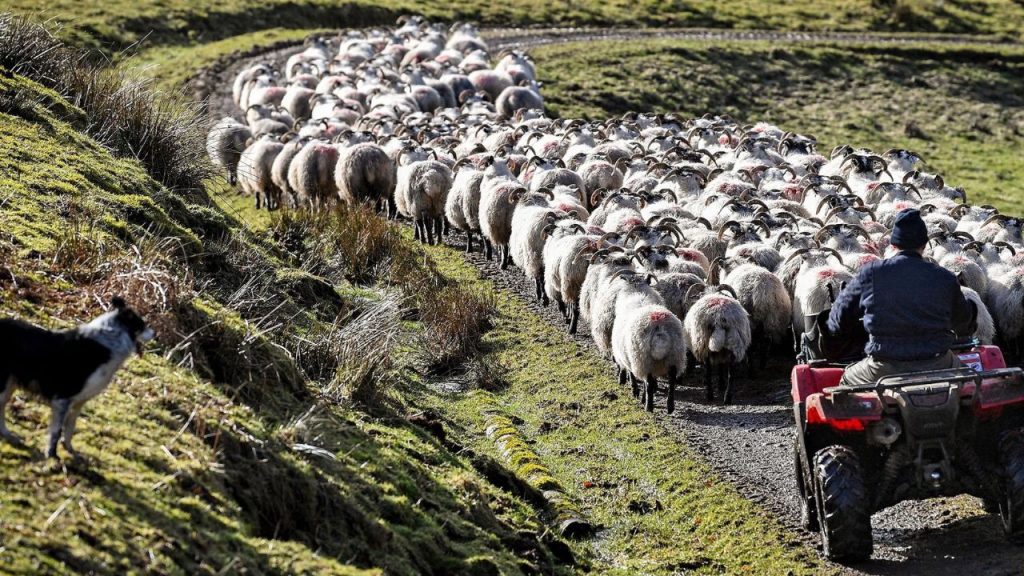A New Direction for UK Agriculture
The United Kingdom’s departure from the European Union marked the end of its participation in the Common Agricultural Policy (CAP), a framework that had governed British farming for decades. Post-Brexit, the UK is developing its own agricultural policies, aiming to create a system that better suits the needs of its farmers and the environment. This shift presents both challenges and opportunities as the nation redefines its agricultural strategy outside of the CAP’s influence.
The End of the Common Agricultural Policy
The Common Agricultural Policy was established to support farmers across the European Union by providing subsidies and ensuring stable food supplies. For many years, UK farmers benefited from CAP payments, which were primarily based on the amount of land farmed rather than environmental outcomes. However, this system faced criticism for promoting intensive farming practices and failing to address the environmental impacts of agriculture.
Brexit provided the UK with the chance to break away from the CAP and design a new agricultural policy that prioritises environmental sustainability, food security, and rural development. The transition away from CAP has been gradual, with the UK government introducing new schemes to replace the direct payments that farmers had come to rely on.
The Environmental Land Management Scheme (ELMS)
One of the key components of the UK’s post-Brexit agricultural policy is the Environmental Land Management Scheme (ELMS). ELMS is designed to reward farmers for delivering public goods, such as improving biodiversity, enhancing water quality, and reducing carbon emissions. Unlike the CAP, which focused on land-based payments, ELMS emphasises environmental stewardship and sustainable farming practices.
ELMS is divided into three main components: the Sustainable Farming Incentive (SFI), Local Nature Recovery, and Landscape Recovery. The SFI supports farmers in adopting environmentally friendly practices on their land, while Local Nature Recovery encourages collaborative efforts to restore habitats and improve the natural environment. Landscape Recovery targets large-scale projects, such as rewilding and peatland restoration, aimed at delivering significant environmental benefits.

Challenges and Adjustments for Farmers
The transition from CAP to ELMS has not been without challenges. Many UK farmers have expressed concerns about the financial implications of moving away from direct payments, which provided a steady income stream. The new system requires farmers to adopt practices that may involve additional costs and changes to their traditional farming methods. For some, the uncertainty surrounding the level of support available during the transition period has added to their concerns.
Additionally, the phased implementation of ELMS has led to a period of adjustment for farmers, who must now navigate new schemes and requirements. The UK government has provided guidance and support to help farmers understand and participate in the new system, but the shift has required significant adaptation and forward planning.
Opportunities for Innovation and Sustainability
Despite the challenges, the UK’s departure from the CAP offers opportunities for innovation in agriculture. By focusing on environmental outcomes, the UK government aims to promote more sustainable and resilient farming practices. This includes encouraging the adoption of agri-tech innovations, such as precision farming, to increase efficiency and reduce environmental impacts.
The shift also opens the door for greater diversification in the agricultural sector. Farmers are being encouraged to explore new income streams, such as agritourism, renewable energy production, and the development of niche markets for organic and sustainably produced goods. These opportunities can help to build resilience against market fluctuations and environmental changes.
Impact on Food Security and Rural Communities
The post-Brexit agricultural policy also considers the importance of food security and the vitality of rural communities. By supporting sustainable farming practices, the UK aims to ensure a stable and reliable food supply for the nation. Additionally, the focus on environmental stewardship can help to protect the natural resources that underpin agricultural production, such as soil health and water availability.
Rural communities, which are heavily reliant on agriculture, are also a key consideration in the new policy framework. The government has introduced measures to support rural development, such as funding for infrastructure improvements and initiatives to boost rural economies. By investing in these areas, the UK aims to create vibrant rural communities that are less dependent on traditional farming alone.
The Future of UK Agriculture
The UK’s post-Brexit agricultural policy marks a significant shift from the CAP, with a renewed focus on sustainability, innovation, and rural development. While the transition has presented challenges, it also offers opportunities for the UK to lead the way in sustainable farming practices and environmental conservation. As the new policies continue to evolve, the future of UK agriculture will depend on how effectively these changes are implemented and how well farmers adapt to the new landscape.
Conclusion: Post-Brexit Common Agricultural Policy (CAP)
The post-Brexit agricultural policy represents a turning point for UK farming, moving away from the Common Agricultural Policy towards a system that prioritises environmental sustainability and innovation. While the transition has been challenging for many farmers, the new focus on public goods and sustainable practices offers the potential for a more resilient and prosperous agricultural sector. As the UK continues to develop and refine its agricultural policies, the future of farming in the country will be shaped by how well it navigates this period of change and embraces the opportunities that lie ahead.
4o
